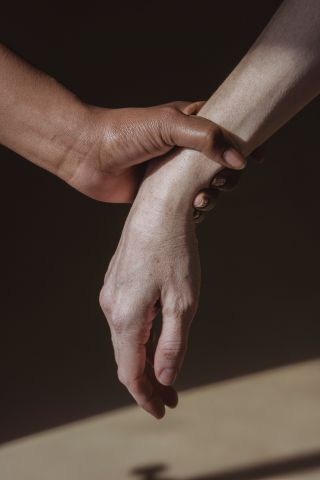Codependency
Does Your Relationship Feature This Unhealthy Dynamic?
The trouble with relationship interdependence.
Posted June 28, 2023 Reviewed by Gary Drevitch

Are you worried you may have excessive emotional or psychological reliance on a partner? The next question you probably have is: What is excessive? That can be subjective but depends on how unhealthy it may be. If you find yourself unable to function with activities of daily living without your partner then you may be experiencing relationship interdependence. If your partner is your best friend and number-one supporter, you may not be. Low self-esteem can be an indicator as well, if the sought-out approval is an excessive amount and required by your partner.
The American Society for Addiction Medicine notes there is a strong occurrence of one partner having an illness or type of addiction that adds another unhealthy layer to the interdependent relationship but this may not be true for all of them. If the dependent person is suffering from an illness and requires a lot of care-taking and assistance they can become dependent on a partner and lose some independence. On the other hand, if a partner is suffering from an addiction to drugs, alcohol, or gambling, they can often create a dependency in a manipulative way as a means for their partner not to leave them.
Is My Relationship Interdependent?
How can you tell if you are in a interdependent relationship or may be heading down that path? Let’s look at some common warning signs of unhealthy relationship behavior related to dependency:
- Not being able to do simple tasks without your partner.
- Having to ask your partner what you should do or if you can do something (spending time with friends, cutting your hair, buying groceries).
- Obsessing over making your partner happy so they won’t leave you.
- Not being happy if you aren’t doing things for your partner.
- Sacrificing your own needs for your partner.
- Feeling a lack of boundaries in the relationship due to fear of losing your partner.
- Poor self-esteem that can only be validated by your partner.
- Lots of anxiety about your relationship.
- Not having friends or family who can support you.
- The inability to do things with other people without your partner.
- Loved ones have suggested concern about your relationship being unhealthy.
A lot of these examples can also be attributed to other unhealthy behaviors in relationships. Many are seen in abusive relationships in which there is emotional and physical control of what you can do, where you can go, what you say, and what your partner needs. If you feel like you may be in an abusive relationship you should seek out help now in counseling or at your local domestic violence shelter. These examples can be related to anxiety disorders and trauma as well, so counseling is a great idea if you find some of these things are occurring in your relationship.
If you aren’t sure about seeking couples or individual counseling it can be a good idea to try both. Once you complete an intake session the counselor would let you know if you need to focus on one over the other first.
To find a therapist, visit the Psychology Today Therapy Directory.


